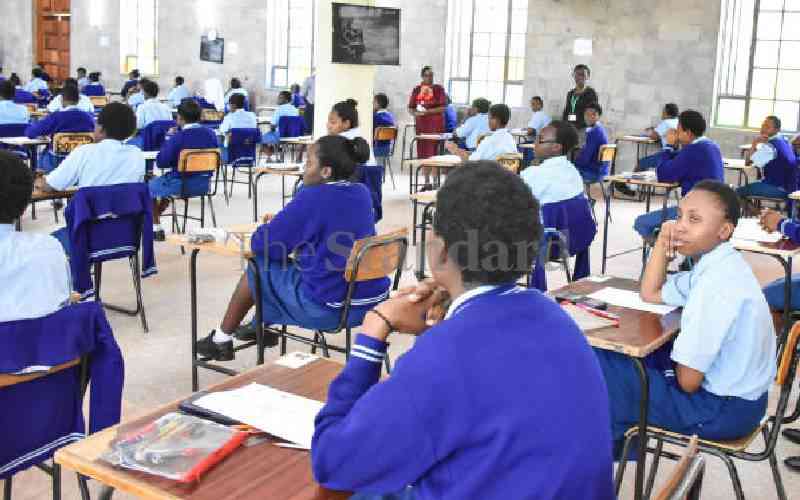×
The Standard e-Paper
Stay Informed, Even Offline

Over 900,000 learners commence the Kenya Certificate of Secondary Education (KCSE) theory papers this morning, as the examination body assured that all is set for the tests, which will run for the next three weeks.
This year, Kenya National Examination Council (Knec) has introduced new measures in exam administration, as part of curbing cheating, which includes personalising papers and not printing extra papers.